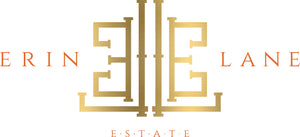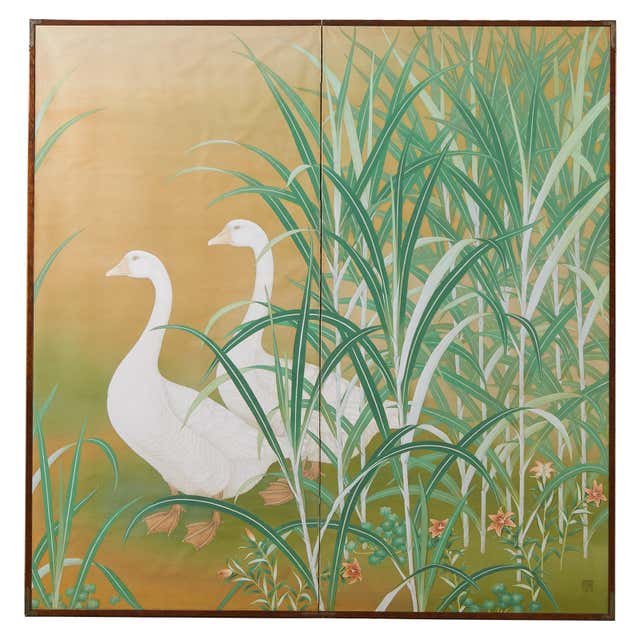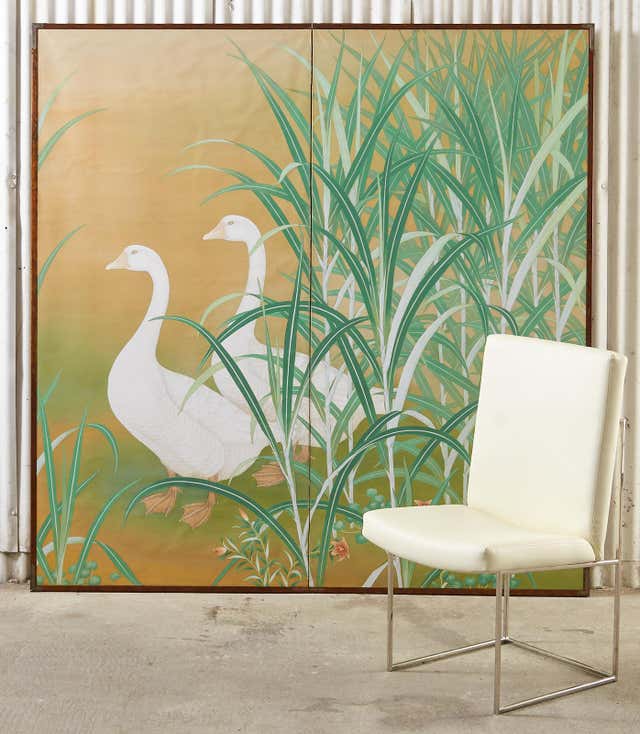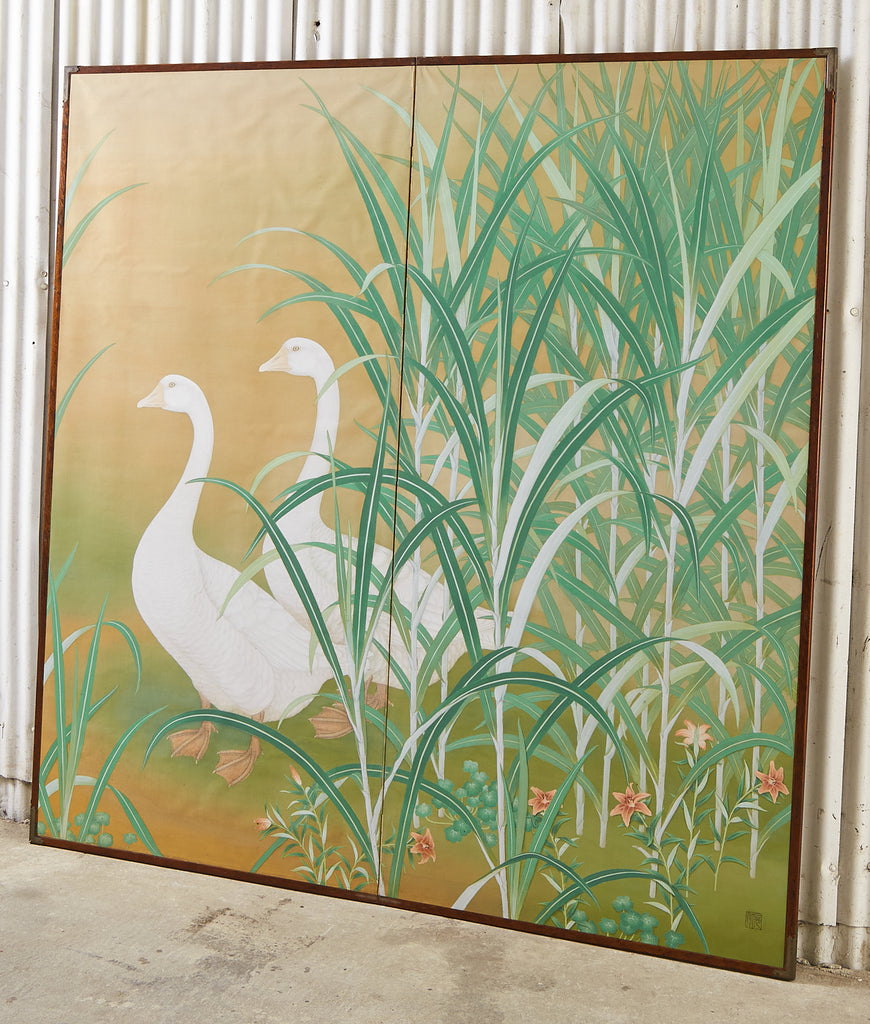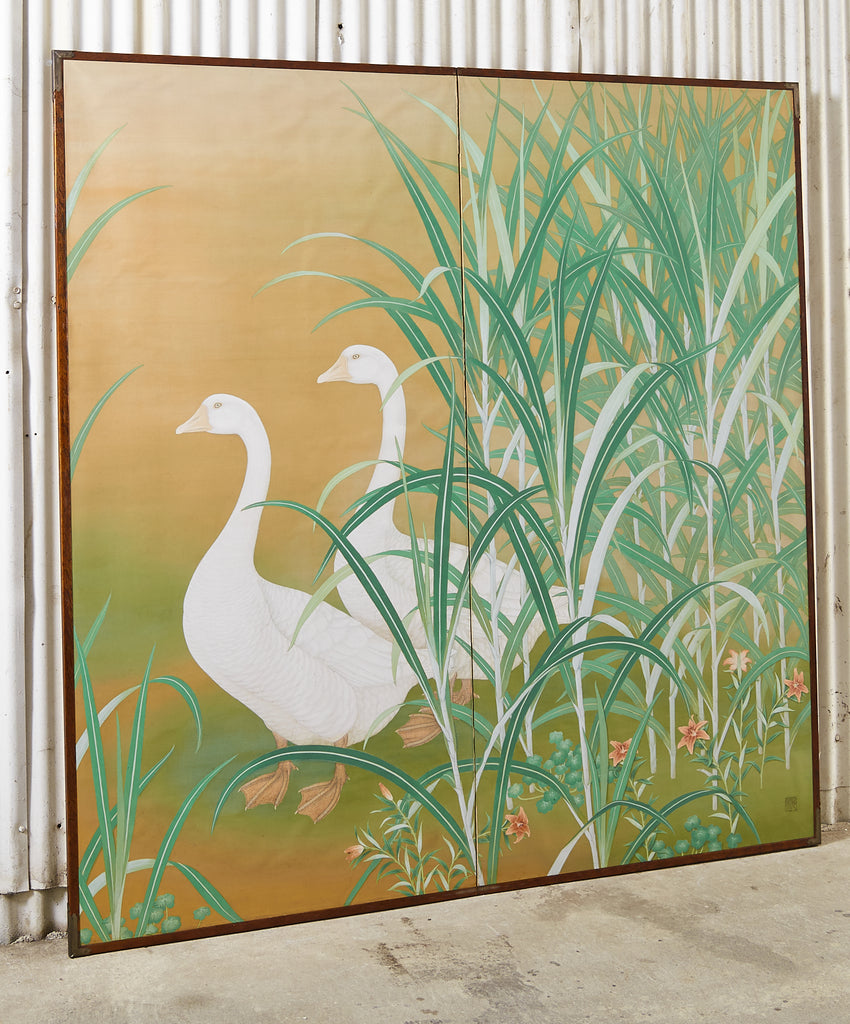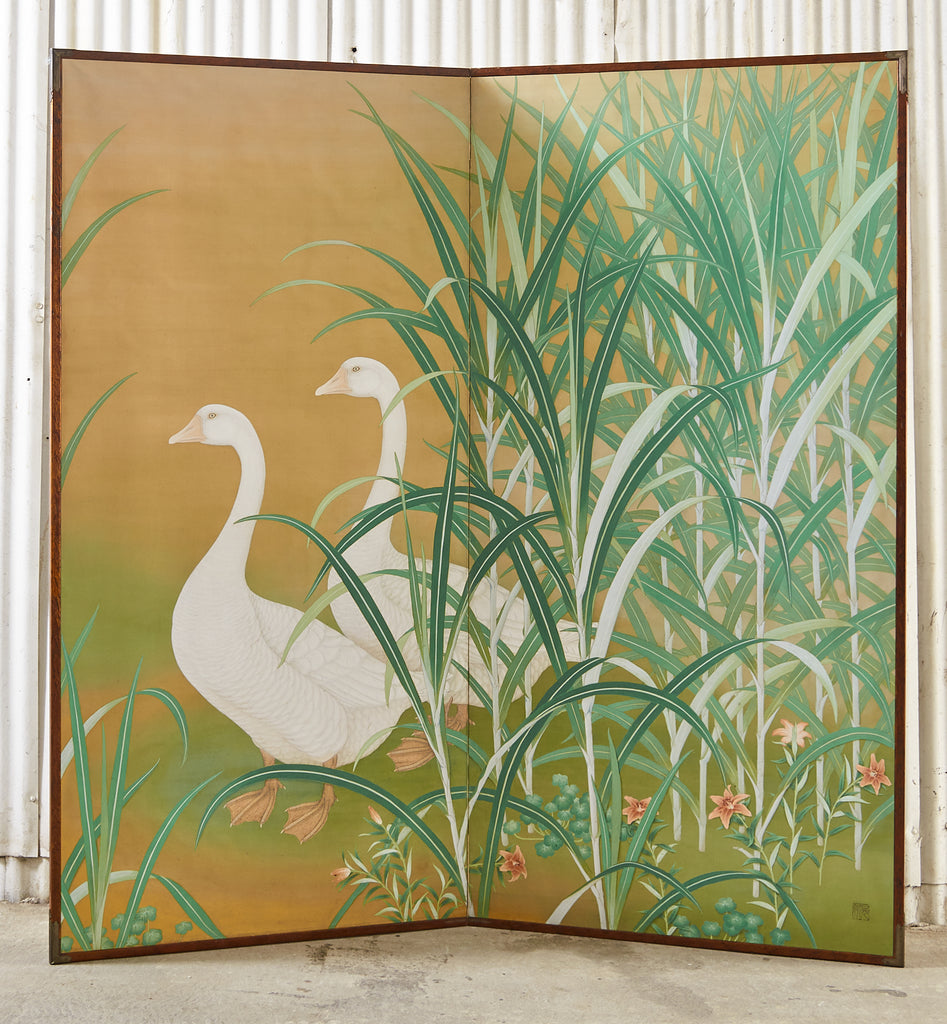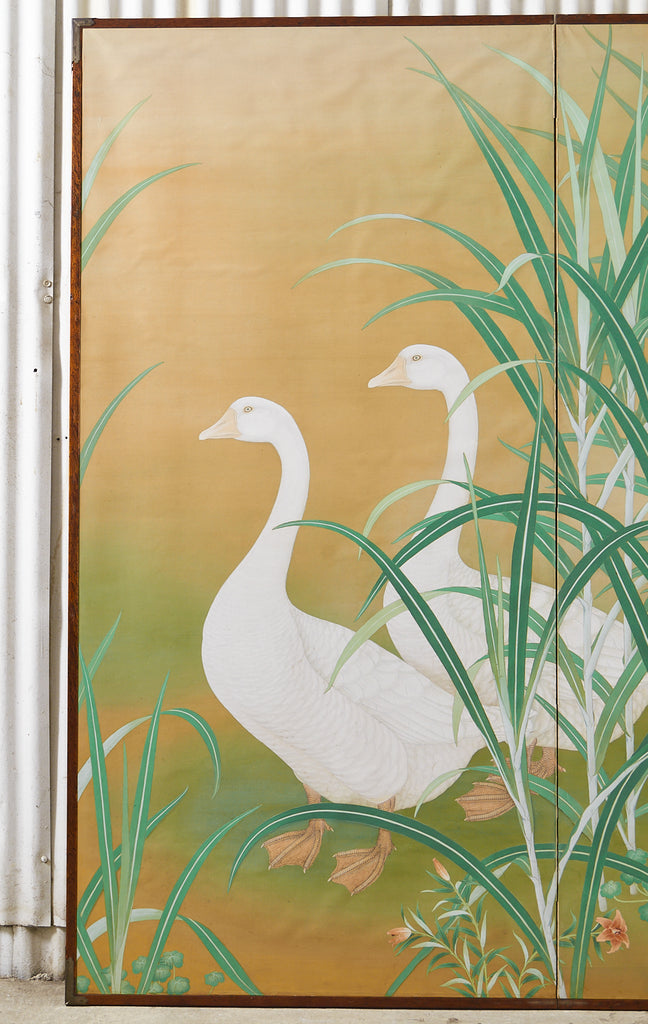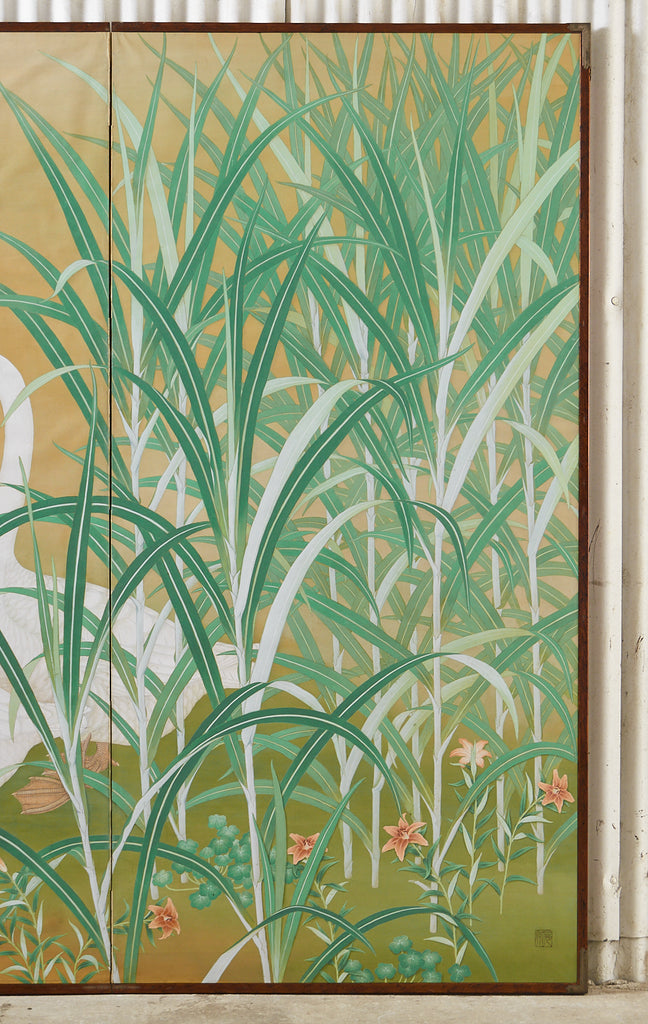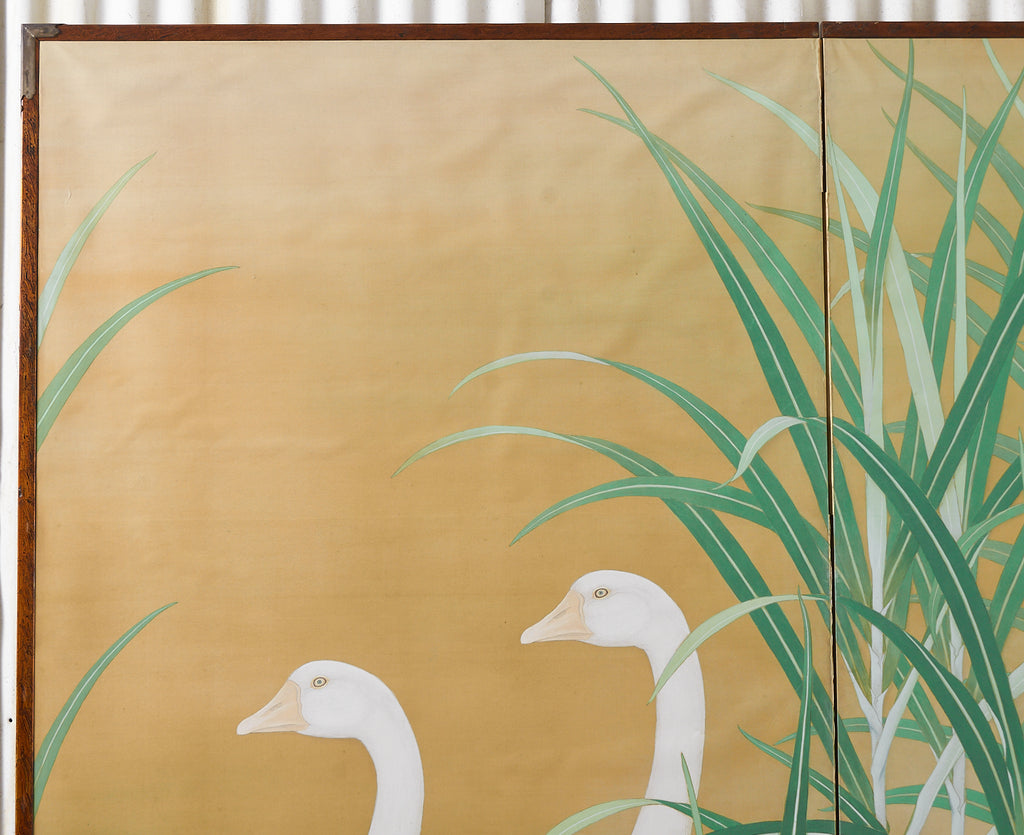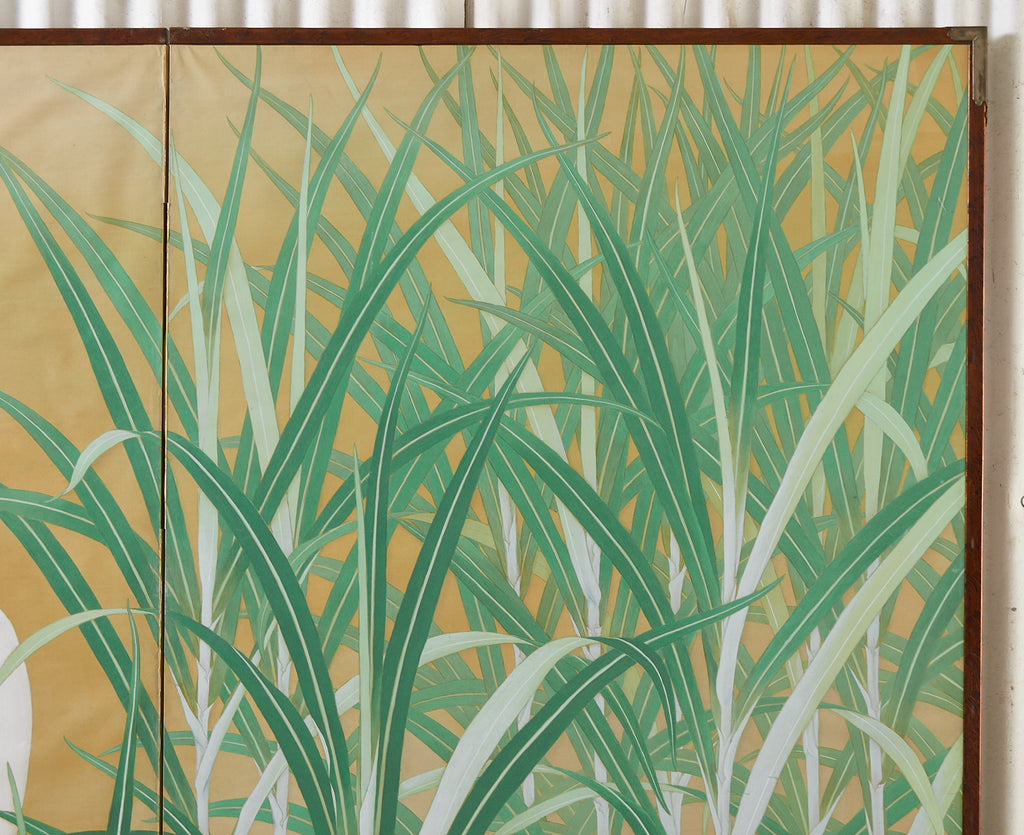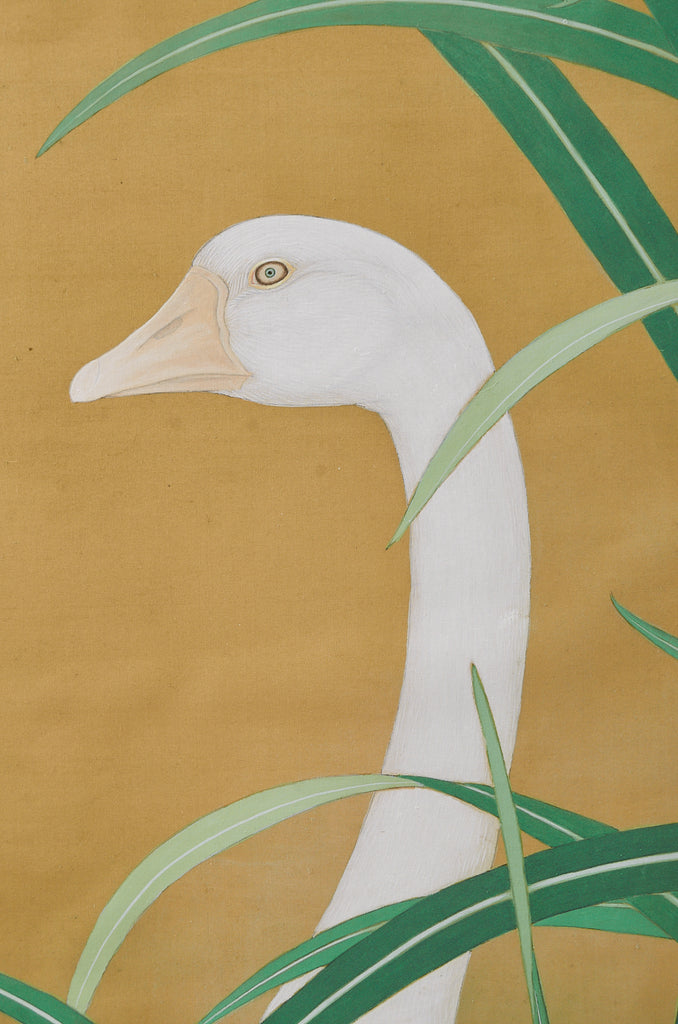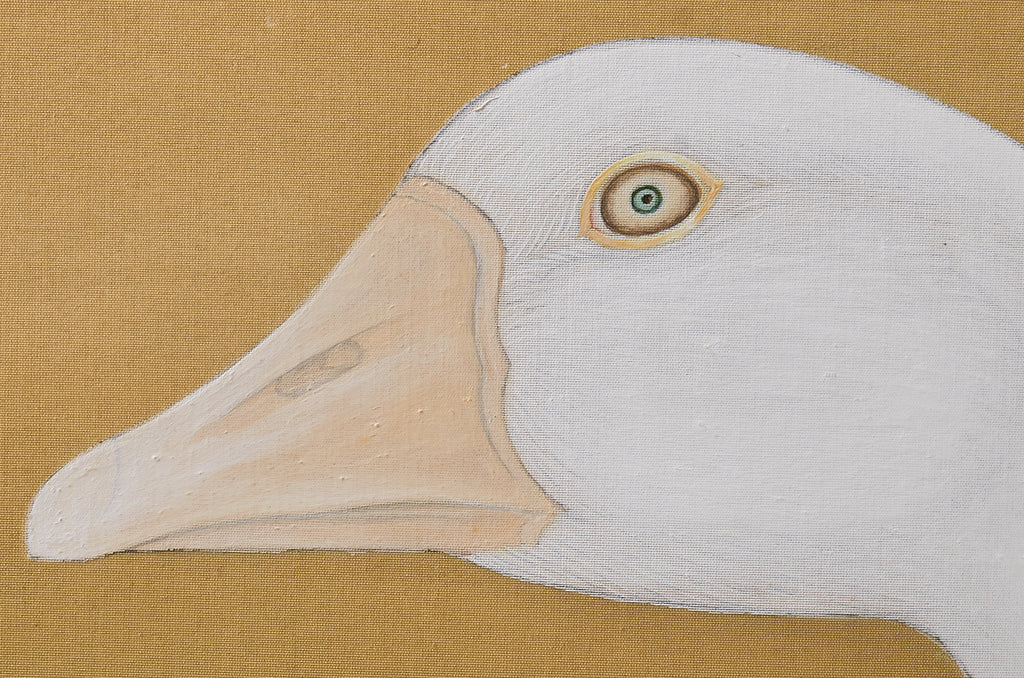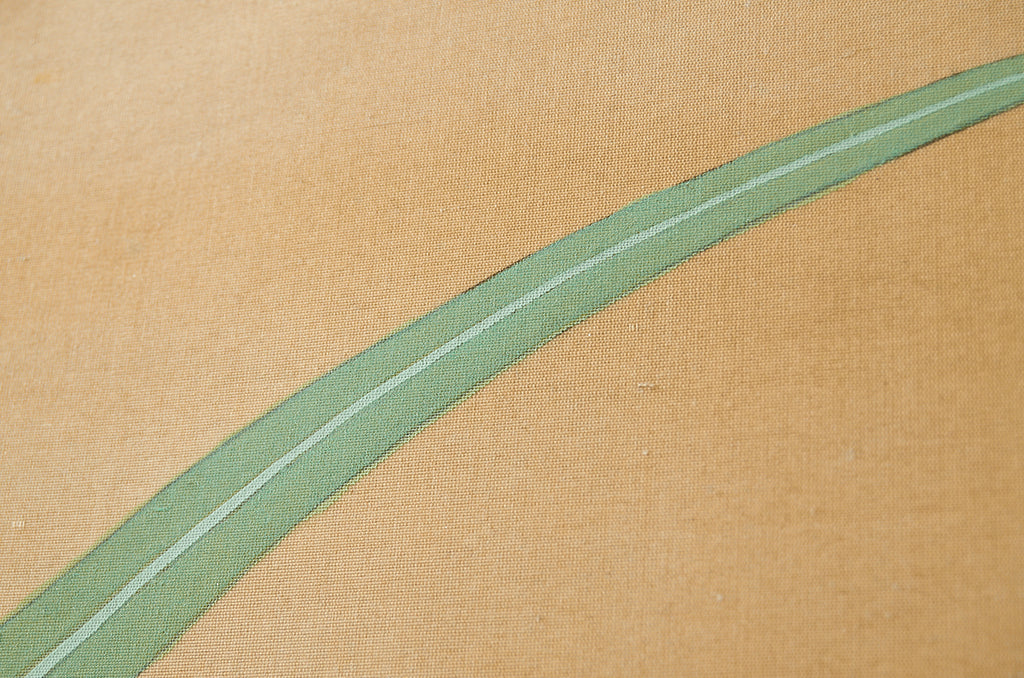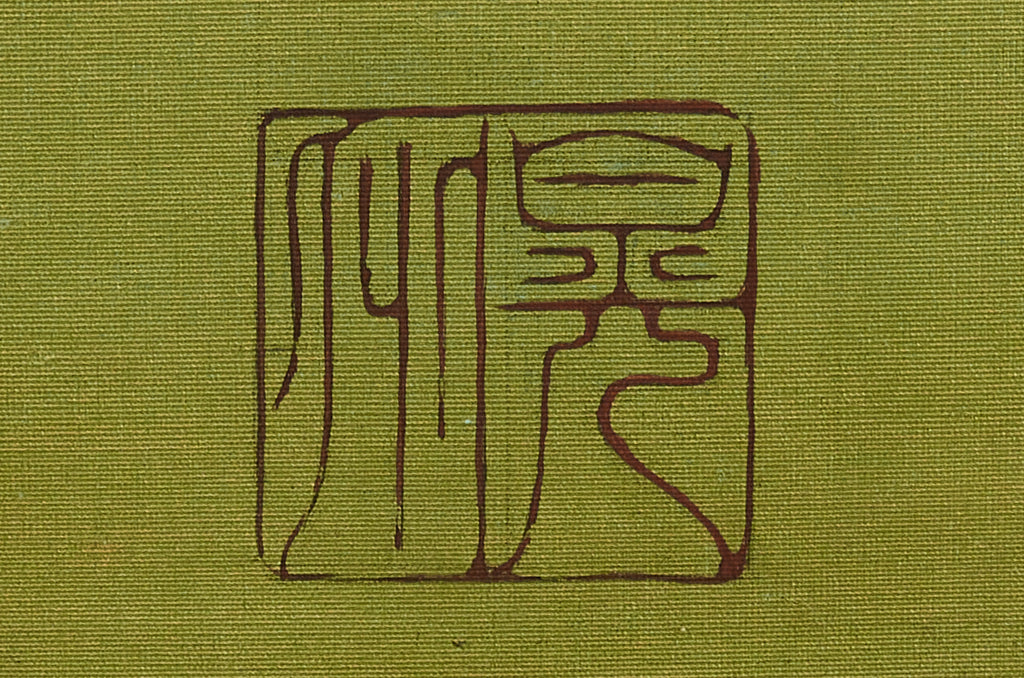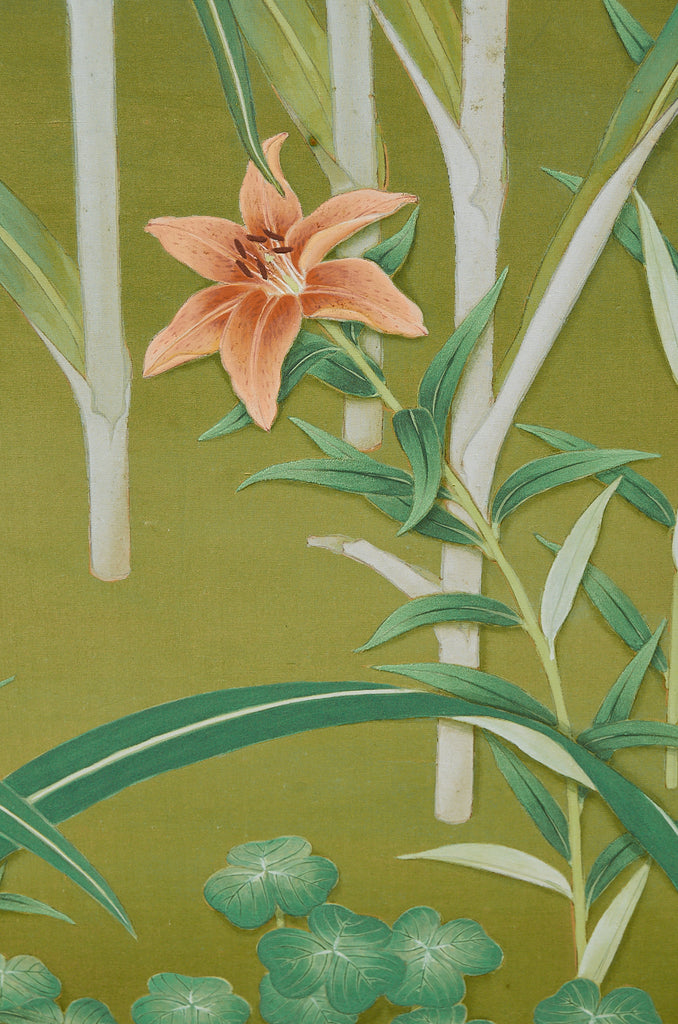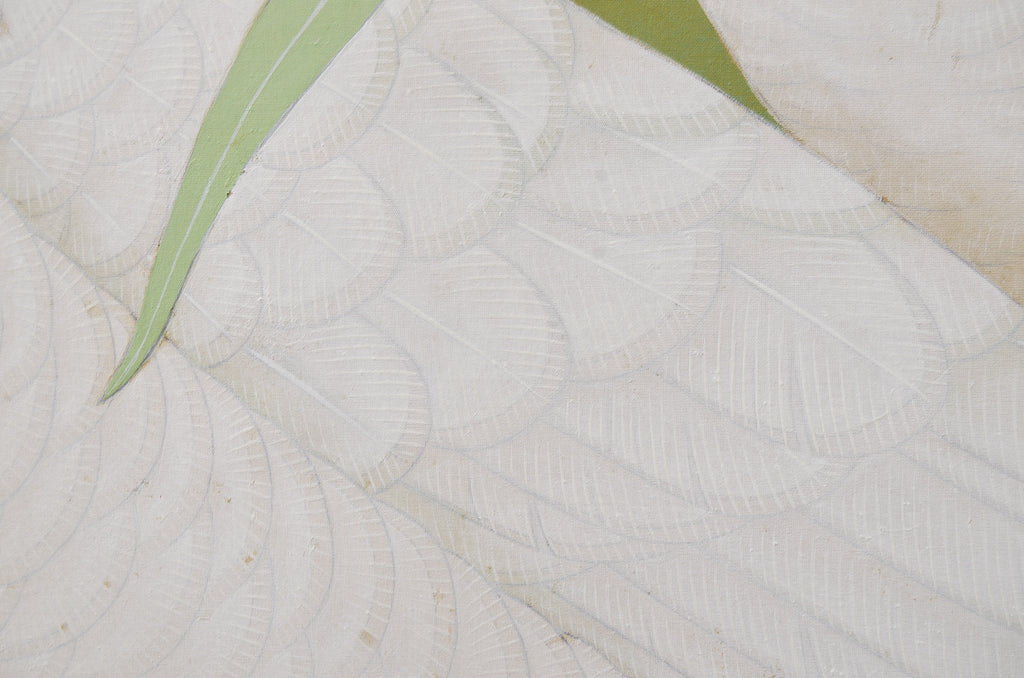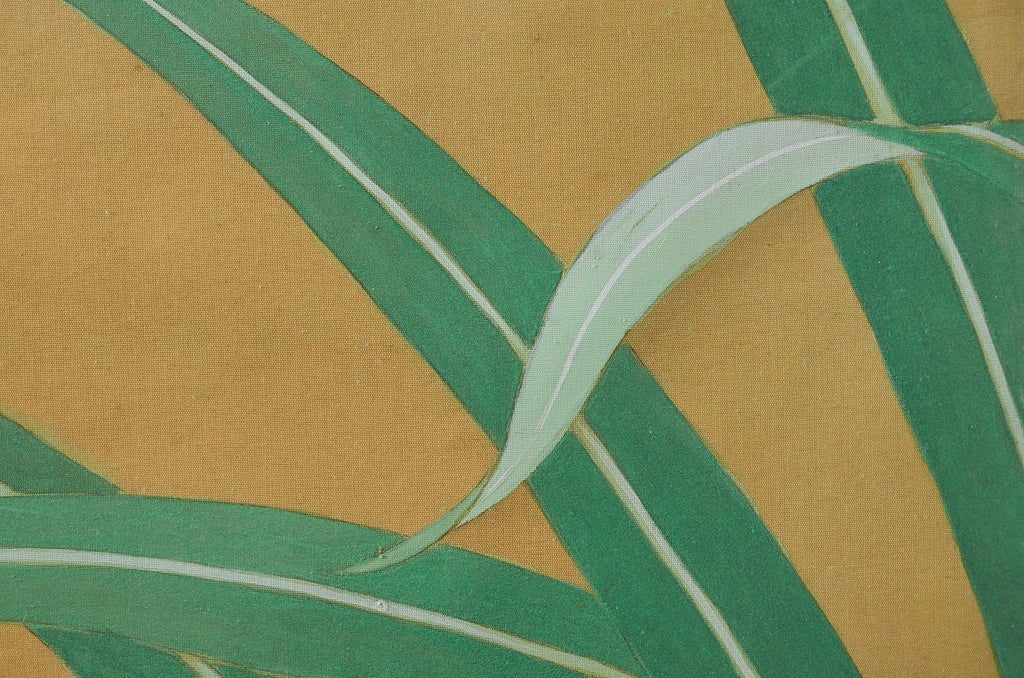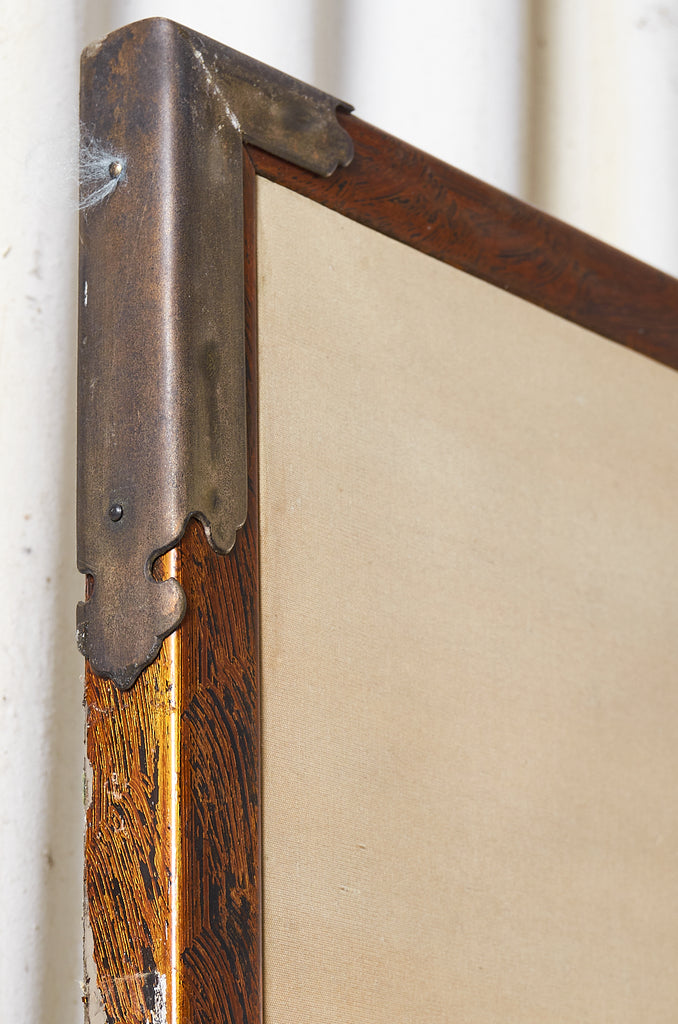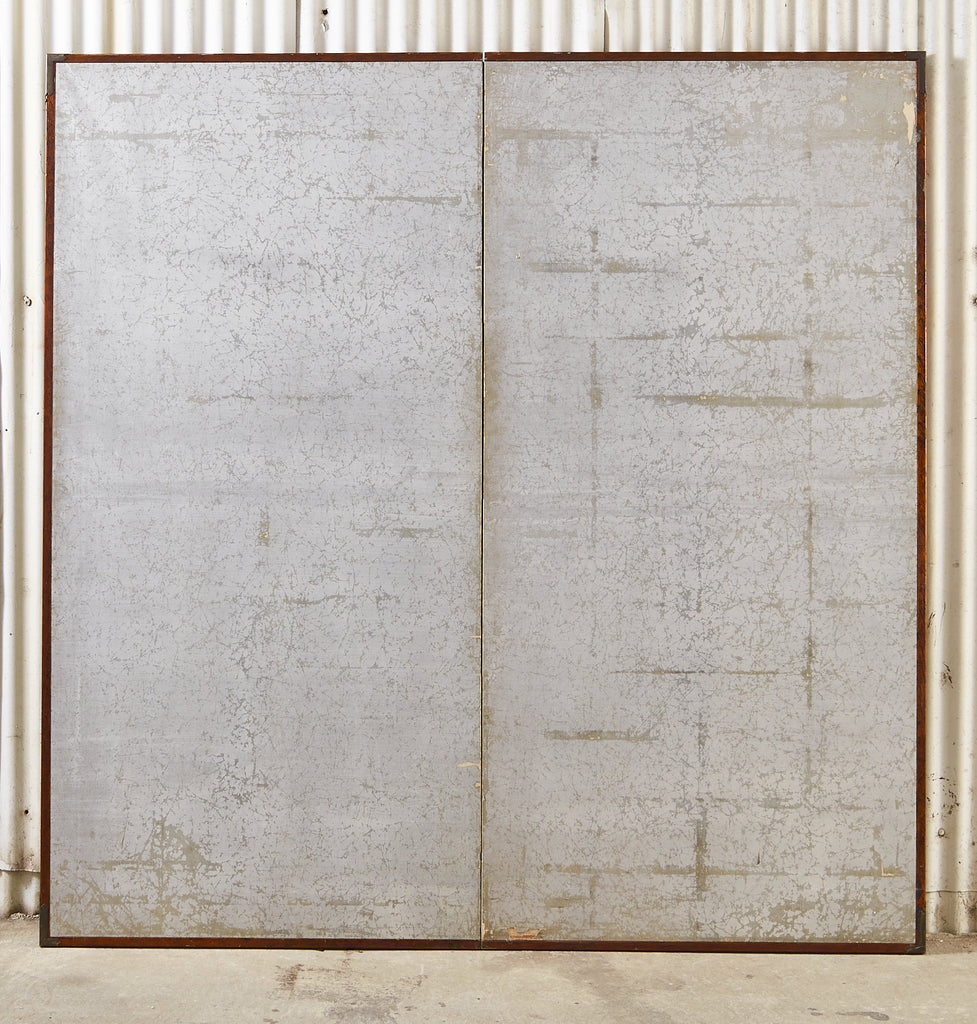Japanese Meiji Two Panel Screen Geese and Reeds
$20,000.00
Fantastic Japanese late Meiji period two-panel byobu screen by Hashimoto Koshu. The large screen features two white geese amid brightly colored reeds. The symbolism of geese and reeds was introduced to Japan from China in the 13th century. This was a popular subject for Japanese zen artists of the period. Beautifully crafted with exceptional brush strokes and details. Made with natural pigments in dramatic vivid colors of white, pink, and mint green on a silk background of gilt. Circa 1900 with artist seal on bottom right corner. Koshu studied Western art under Koyama Shoturo (1878-1932) and Japanese art under Yemanouchi Tamon (1878-1932). The screen is set in a lacquered wood frame.
Dimensions: 73"w x .75"d x 74.5"h
Circa: Early 20th Century, Japan
Materials: Silk, Wood, Paper, Brass
Condition: Good, minor wear consistent with age and use. Very good condition and age appropriate wear and fading as seen in photos. Minor creases at joint difficult to see. Minor wear on lacquered frame as expected.
Dimensions: 73"w x .75"d x 74.5"h
Circa: Early 20th Century, Japan
Materials: Silk, Wood, Paper, Brass
Condition: Good, minor wear consistent with age and use. Very good condition and age appropriate wear and fading as seen in photos. Minor creases at joint difficult to see. Minor wear on lacquered frame as expected.

